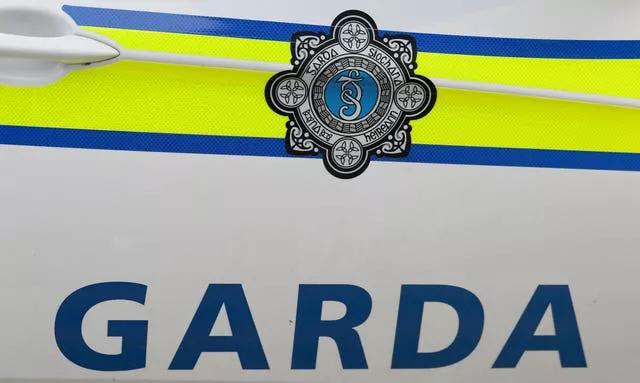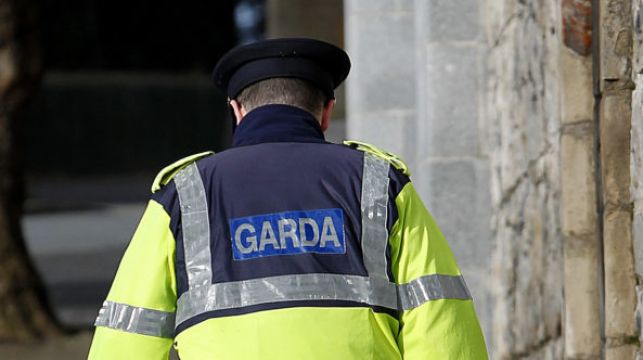Sexual offences and human trafficking were the top two policing priorities identified by members of the public in 2020, a survey has found.
Robberies, illegal weapons, assaults and drugs offences were the next top priorities, according to the survey carried out by Amárach Research on behalf of An Garda Síochána.
Some 66 per cent of people view national crime as a very serious or serious problem, while 15 per cent see local crime as a very serious or serious problem.
Perceptions of national crime as a serious problem were higher among older age groups, while perceptions about national and local crime as a serious problem were higher in Dublin.

Some 30 per cent of respondents reported they did not worry about themselves, or anyone they live with, becoming a victim of crime.
Women reported a greater level of worry about themselves, or someone they live with, becoming a victim of crime than men.
Higher proportions of younger people worried about becoming the victim of personal injury than any other age group.
Victims of crimes in the preceding 12 months reported greater levels of worry of future victimisation as opposed to non-victims of crime.
Women, older respondents and those from Dublin reported greater fears about the level of crime in Ireland, as did victims of crime in the previous 12-month period.
Some 44 per cent of respondents reported that a fear of crime had “no impact” on their quality of life, with 8 per cent saying it had “greatly reduced” or “significantly reduced” their quality of life.
This increased to 11 per cent for respondents who had been a victim of crime in the previous 12 months.
Meanwhile, 81 per cent of people said they had mid to high levels of trust in An Garda Síochána.
Older respondents expressed higher levels of trust, as did rural respondents, while people who had a greater awareness of garda patrols expressed a greater trust in the force.
Some 86 per cent of respondents either “strongly agreed” or “agreed” that gardaí would treat you with respect if you had contact with them for any reason, and 69 per cent “strongly agreed” or “agreed” that gardaí in their area treat everyone fairly, regardless of who they are.
Older age groups expressed greater agreement with the statement “that gardaí would treat you with respect if you had contact with them for any reason” than younger age groups.
Half of 18 to 24-year-olds “strongly agreed” or “agreed” that gardaí in their area treat everyone fairly regardless of who they are.
Some 63 per cent “strongly agreed” or “agreed” that gardaí can be relied on to be there when you need them.
Seventy-two per cent of people “strongly agreed” or “agreed” that gardaí listen to the concerns of local people, while 60 per cent “strongly disagreed” or “disagreed” with the statement that community relations with the gardai are poor.
In the 2020 Online Garda Survey, 20 per cent of respondents said they were the victim of crime in the previous 12 months.
This is a much higher victimisation rate than is typically found in nationally representative surveys, and reflects the opt-in nature of the online survey.
Some 26 per cent of those who reported being a victim in the survey were the victim of online fraud and 18 per cent were the victim of criminal damage.
The high number of online fraud victims mirrors the sharp increase in this crime during the Covid-19 pandemic.
While reporting rates varied by crime type, theft of a car was most likely to be reported at 87 per cent.
Victimisation rates were higher amongst younger people and for those living in city areas.
Some 53 per cent of victims reported being very satisfied or satisfied with how gardaí handled their case, with 61 per cent reporting that the gardaí responded quickly when they reported the incident, and 68 per cent were provided with contact details.
Whilst 44 per cent of victims who reported their crime felt they received about the right amount of information afterwards, 26 per cent thought it was too little and 30 per cent said they received no satisfactory updates.
The survey was carried out over four months from September to December in 2020.
Some 6,000 adults were surveyed, while a smaller sample of younger people, aged 16 to 17, were also surveyed, with parental consent, in November 2020.
The Garda cautioned that an online survey is not as representative of the population as is desirable because older adults and those in less urban areas are under-represented.
It said that respondents represent a much higher level of urban dwellers and as a result, the survey is referred to as an “urbanised cohort”.
Garda Commissioner Drew Harris said: “Although we were unable to run a public attitudes survey in 2020 due to the Covid-19 pandemic, the online survey provides An Garda Síochána with valuable insights into the views of victims of crime and urban dwellers.

“I am pleased with the high levels of trust and positive public engagement.
“The findings have been carefully considered by my senior management team and, as with any survey, this online survey highlights areas of concern and where An Garda Síochána can improve.
“We have already started to address some of these and further improvements to how we provide our service will be made over the coming year.”







